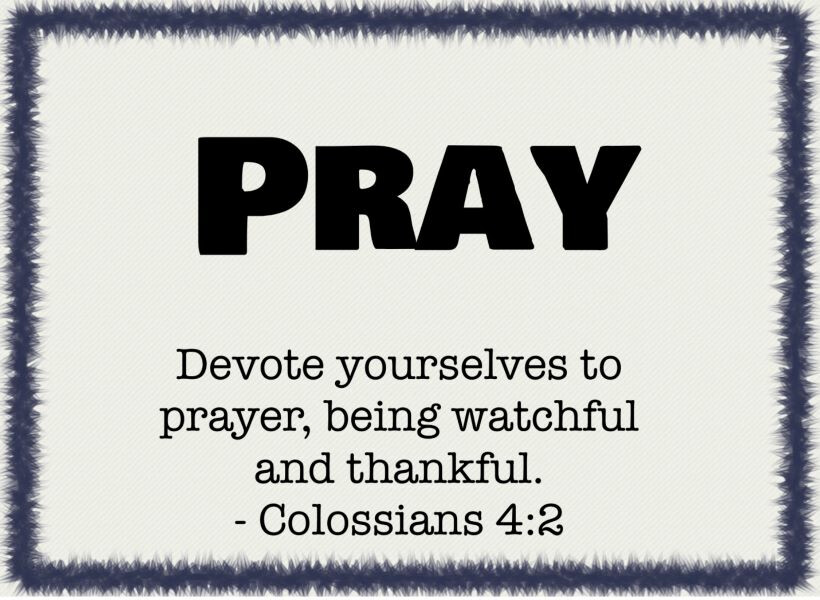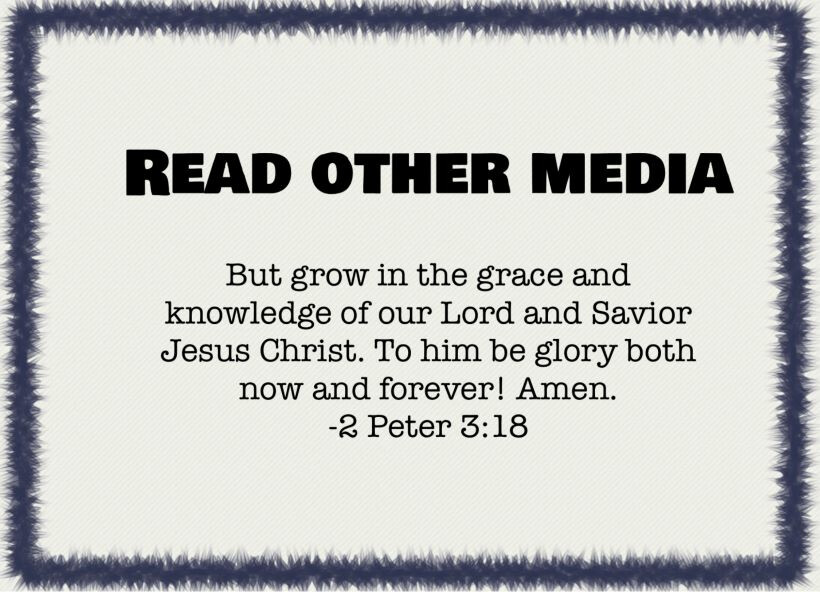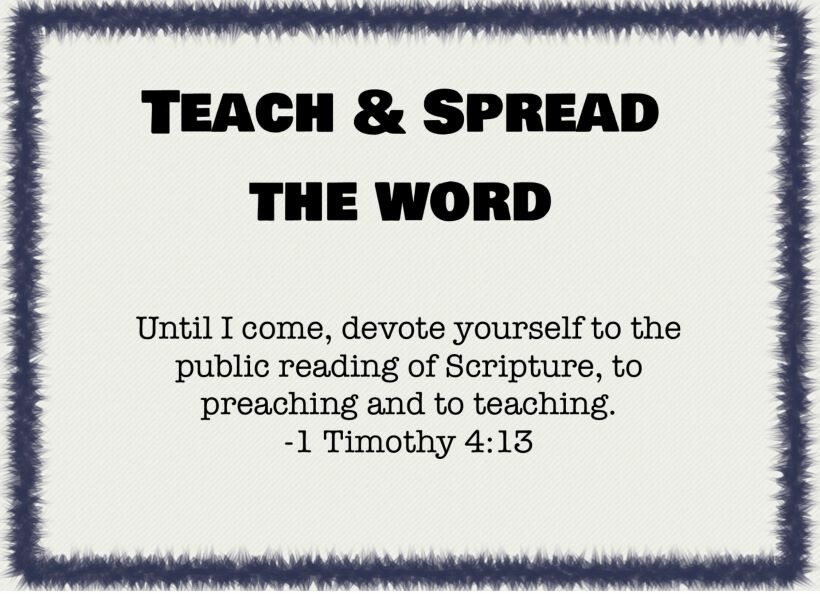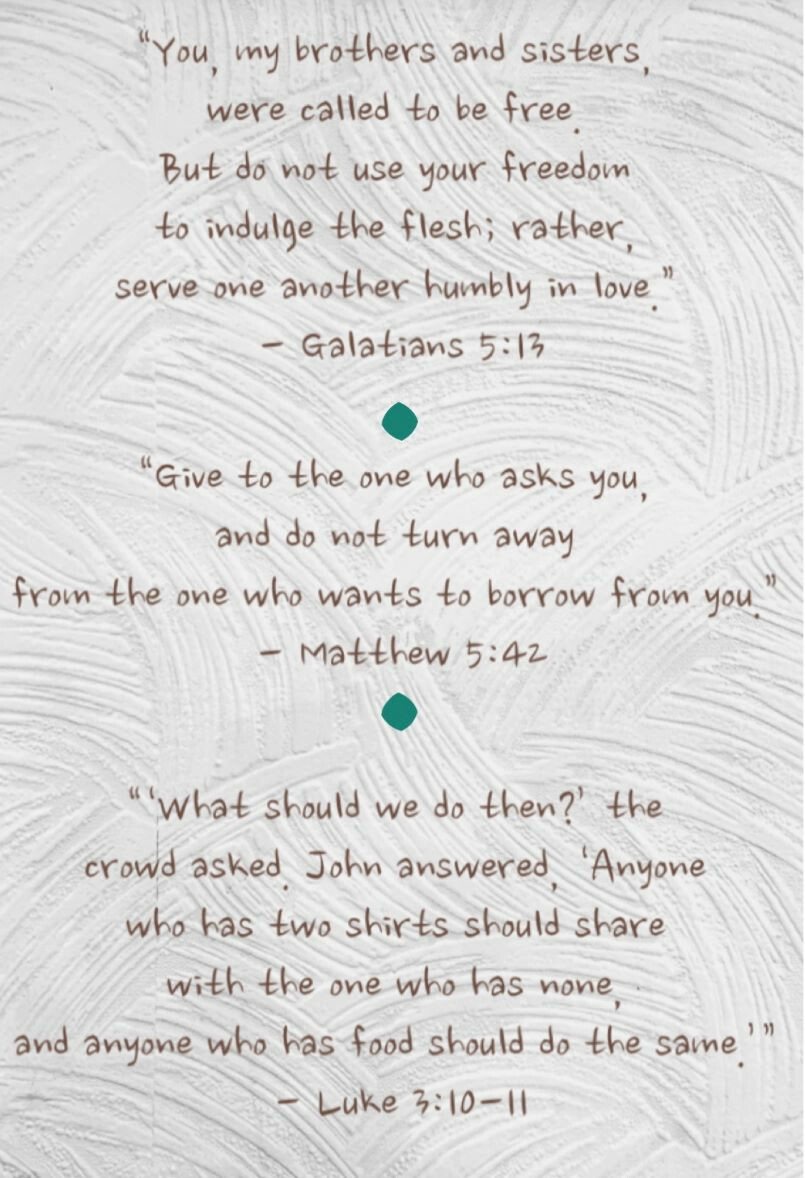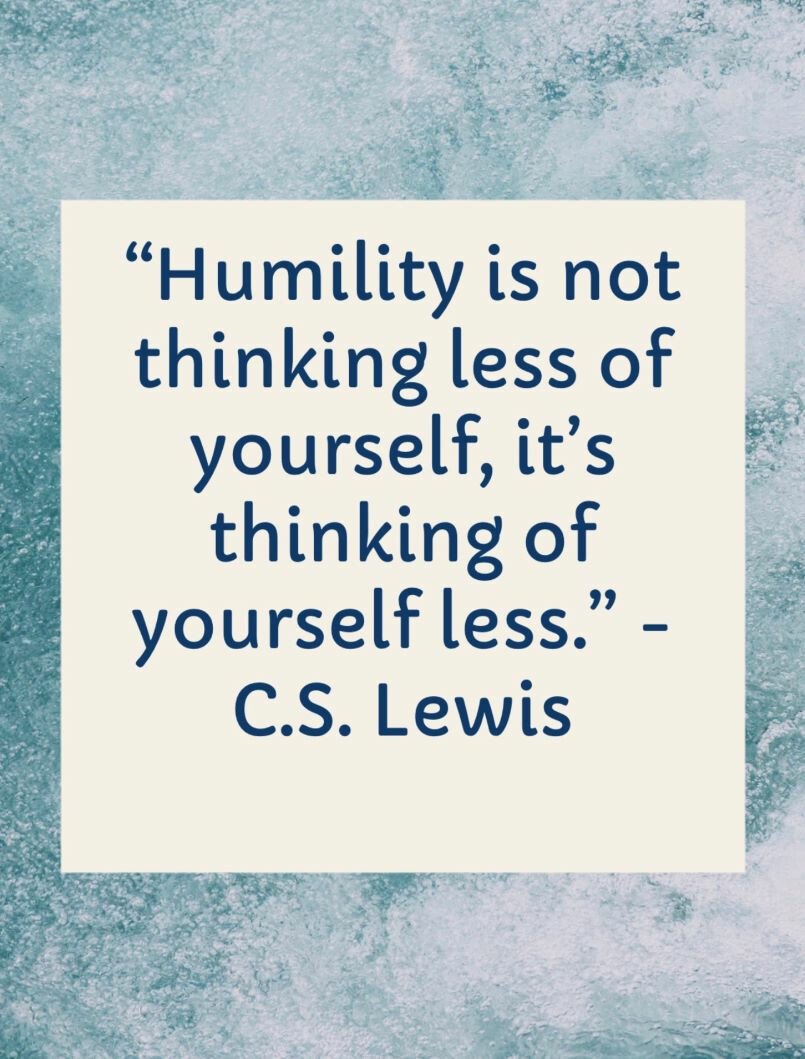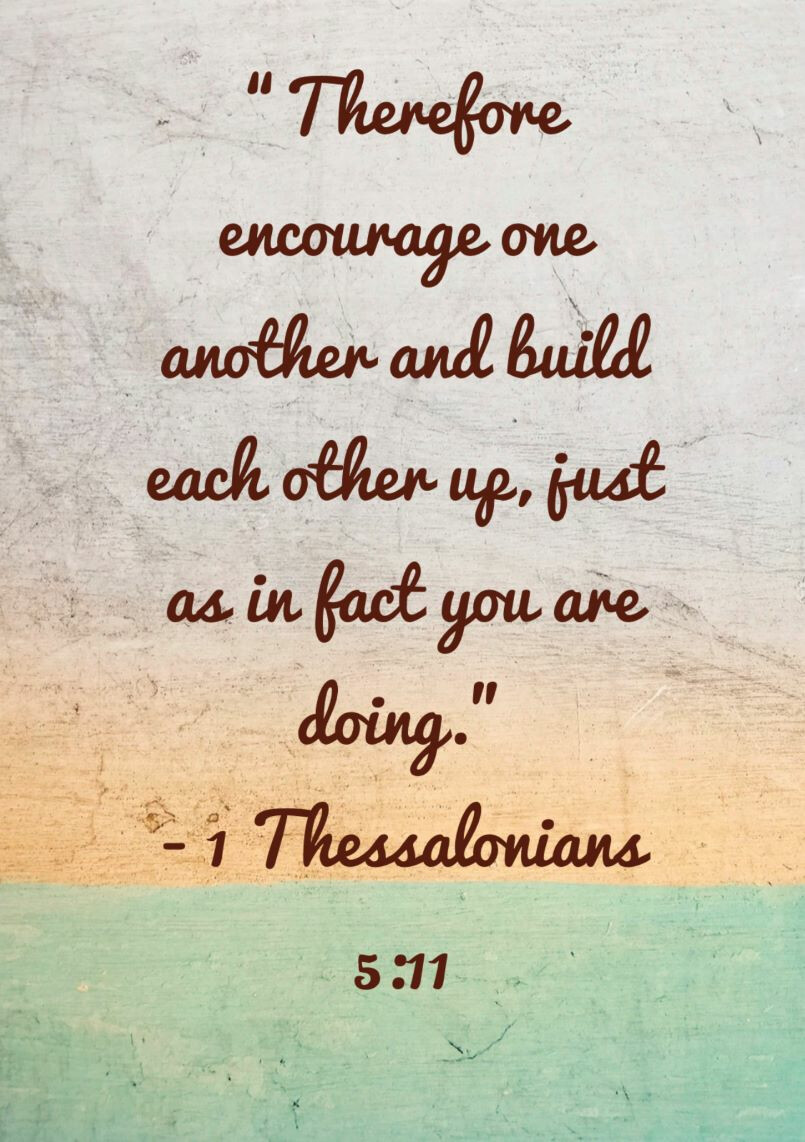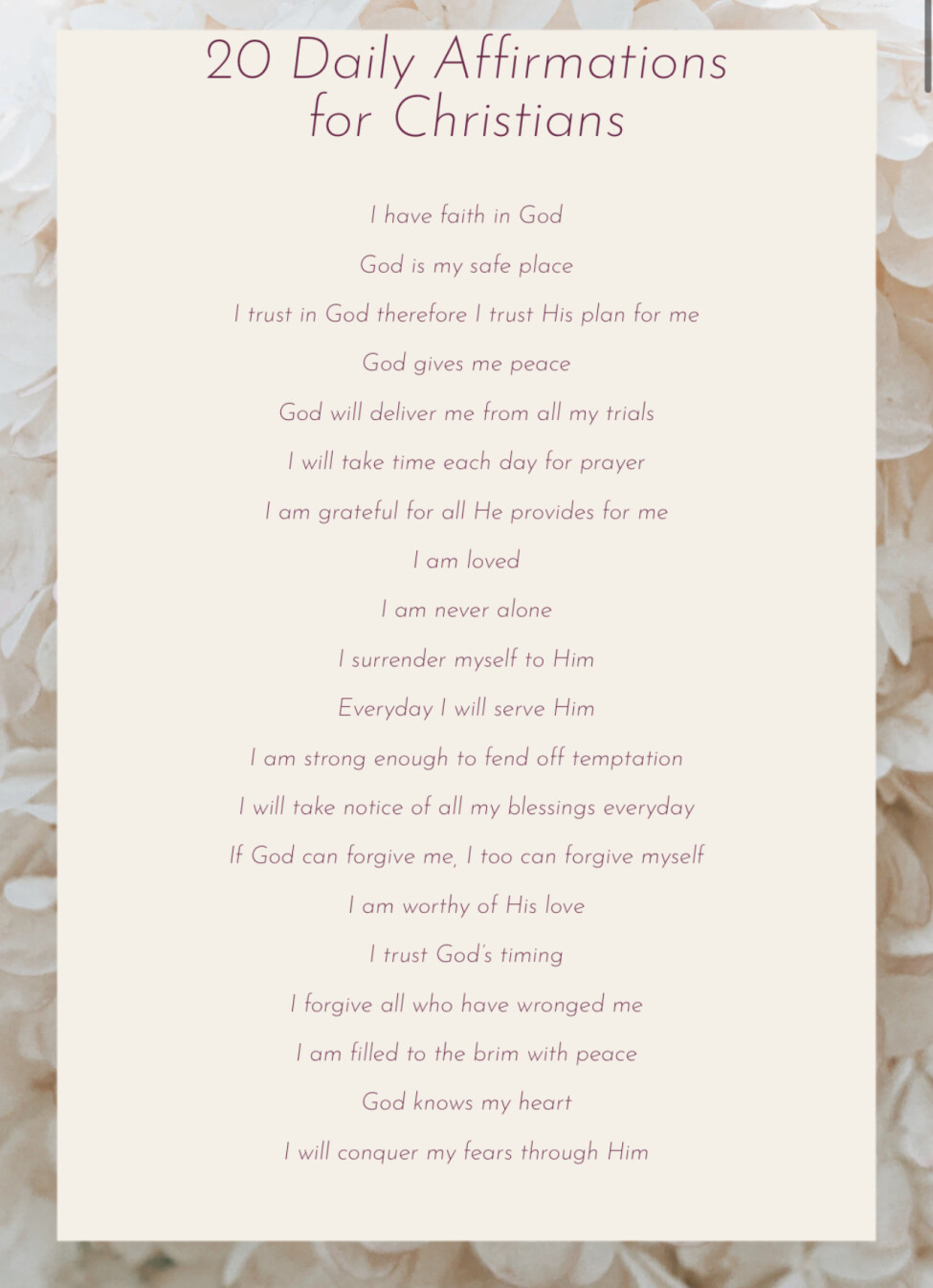8 Ways You Can Spend Time With God Daily
Why Should We Spend Time with God Every Day?
We know that in order to foster any relationship open communication is essential. Imagine if you neglected effectively communicating with those in your daily life: your spouse, your children, your boss, or a friend. How quickly would that relationship turn cold? Your hearts would harden, strain would be present, and trust would wither away. Now let me remind you, God is with us every day. What happens to our relationship with Him when we don’t communicate with Him daily?
Within our everyday relationships, there are times of silence. You might be washing the dishes while your spouse is playing on their phone. Maybe you are reading at a coffee shop while your friend is across the table typing on their computer. It is possible that you are sitting at your desk and your coworker is ten feet away, working away on their own duties. These are comfortable silences. You may not be communicating, but you’re present; you're spending time together. Would your relationship dwindle if you didn’t spend this time together? Isn’t it safe to assume your relationship with God would dwindle too?
Any person we are in a healthy relationship with would be worried if we started engaging in wrong behavior. They wouldn’t want us to head down the wrong path. Envision yourself at a park. While your brother runs off to the bathroom, you decide to rest on a bench. Unexpectedly, you find a wallet on the bench nearest to you. You open the wallet to check for an ID so you can return the wallet. You have every intention of returning the wallet until you notice it is full of cash. Suddenly you are entertained by the idea of keeping the money. Who would know? While contemplating whether or not to keep the money, your brother comes up from behind. He notices the wallet and the money. Your brother comments, “Whoa! That’s a lot of money”. Hesitantly, you admit to him that you wanted to keep the cash. Your brother then talks you out of the temptation. He reminds you of your values and explains why that would not be a wise choice. Now, let’s change the story a bit. Instead of going to the park with your brother, you went by yourself. You still find the wallet, and you are still overcome with temptation. Would you have taken the money? Luckily for you, you are never alone. God is always with you and when you have a strong relationship with Him he will help you overcome temptation.
When we love someone, we make certain they know. This can be done in a variety of ways. Regardless if we make a show of our love for someone with a grand gesture, or something simple, kind and thoughtful, we make sure our love for someone is known and they do not doubt our love. If it is fundamental to show your loved ones they are loved every day, why would you not show God the same recognition?
God is your companion. He should be at the forefront of your life. Now let me ask you this, Why shouldn’t we spend time with God every day?
What You Can Do to Establish Time with Him Every Day
Pray
Pray for Yourself- Pray for yourself when you need guidance, protection from temptation, to keep an open line of communication, to let him know your feelings, when you just need to talk, when you’re alone, when you’re excited, when you’re thankful and when you’re sick. It doesn’t matter the reason, keeping God as your first point of contact keeps Him as your number one source of strength.
Pray for Someone Else- It doesn’t matter if this someone else is a friend, a family member, a stranger on the street, your cousin's stepson’s best friend’s aunt, a person you read about in the newspaper, your boss, or any other person you feel inspired to pray for.
Read Your Bible
Read a Quick Passage- Reading something is better than reading nothing.
Reread and Ponder About your Favorite Verse- It’s your favorite verse for a reason. When you reread you are able to identify a new or clearer understanding and perspective.
Read a Chapter- If you have some extra time, spend it reading an entire chapter.
Read Randomly- Close your eyes and open up your Bible. Place a finger somewhere on the page and open up your eyes. Start reading from where your finger is pointed. You might find yourself reading something that is related to your current situation.
Have a Bible Verse Sent to your Phone - There are many options and many versions that can easily be sent to your phone, and it usually only takes a few minutes to sign up for this service and only a few minutes to read the daily verse.
Get Creative
Use Inspiration and Create Artwork that Reminds you of God- This can be anything from drawing, coloring in a coloring book, pulling out the canvas and paint, or even sculpting something from clay. Use your talents He gave you to show your adoration for Him.
Draw Out a Scene From a Passage Directly in your Bible- Adding illustrations directly in your Bible can not only be fun but help you examine the chapter more carefully.
Write a Poem About your Relationship with God- You don’t have to be a world-class poet to write a poem. Just keep it meaningful and personal.
Write a Short Story- Use your imagination and write a short story about your relationship with Jesus or why you attend church, a personal example of an answered prayer, or a conversation you’d have with God in person, just to name a few. Use your imagination!
Write a Screenplay- Write a screenplay based on your favorite chapter in the Bible, the meaning of being a Christian in today’s world, or anything else you can think of.
Write a Letter to God- This is a great way to pour out your feelings and talk to our Father in Heaven.
Write in your Journal- You can write in a prayer journal, gratitude journal, or even a regular journal.
Read Other Media
Read Devotionals- Devotionals are a great and simple way to nourish your relationship with God.
Read a Book by a Christian Author- If you find enjoyment in reading then you could benefit from reading a fiction or non-fiction book by a Christian author.
Read a Christian Blog -Christian blogs contain insightful and beneficial encouragement, lessons, personal experiences, and more. Blogs are a resourceful outlet to stay close to God and connect with other followers of Christ.
Move Your Body
Go on a Prayer Walk- Getting yourself out of the house and taking a prayer walk is an excellent way to nurture and grow your relationship with God. A prayer walk allows there to be a quiet time and safe space to focus on Him.
Listen to your Favorite Christian Music While Working Out- Do you like Christian Rock? Christian Rap? It doesn’t matter the genre, listening to Christian music while getting your body pumping is a great way to connect with God and keep your mortal body healthy.

Enjoy Nature
Go for a Scenic Drive- Contemplate and examine the scenery. Take notice of the beautiful world He provided for us.
Get your Hiking Boots On- Get outdoors and go for a hike or walk. Listen to the sounds of the birds, the insects, and the quiet. Utilize the time and send Him a quick “thanks” to show your appreciation for all that he created.
Teach and Spread the Word
Be an Example- Be an example to those around you. Align your actions with your values.
Share a Note of Encouragement- When you are feeling inspired, share a note of encouragement with someone who may need to hear it. This can be something as simple as reminding the person that God loves them.
Share your Favorite Scripture- Tell someone your favorite scripture and explain to them what that scripture means to you.
Invite Someone to Pray with You- What an intimate and significant way to connect with someone else and the Lord.
Serve Together- Find a volunteer opportunity that you and another person can participate in together.
Suggest a Movie or Book- Make a suggestion to a friend that they watch your favorite faith-based movie or read a book written by your favorite Christian author. Bonus points if you are able to lend them a copy you own.
Share your Testimony- You can share your testimony in person or on your social media accounts. Let others know why your faith in God is the most important aspect of your life.
Listen
Listen to Songs of Worship Throughout your Day- You can play songs of worship while you shower, on your way to work, while folding laundry, or while working on the car.
Listen to Uplifting Music- Keep your music wholesome and stay clear of music that contains negativity.
Find a Christian Podcast- There is a treasure trove of Christian Podcasts. Try out a few and find your favorite.
Listen to the Bible on Audiobook- This can be an effective way to gain an understanding of the Bible.
Listen to Religious Audiobooks Written by your Favorite Christian Authors- Some of us just aren’t readers. Luckily, we can still partake in noteworthy and entertaining Christian texts with audiobooks.
Listen to a Sermon- With the popularity and widespread use of the internet, it is no wonder countless churches are sharing their sermons online these days. We post ours every Sunday afternoon. Be sure to check it out here.
Be Sure To…
- Make spending time with God daily a priority
- When God is your very first priority, spending time with Him daily will be easy. Building upon your relationship with Him will be enjoyable and rewarding. When God is your number one, everything in your life will fall into place.
- Be intentional with your time
- Your time spent with God should be meaningful. It doesn’t matter how much time is spent. What matters is the quality of the time spent. Don’t spend your time with God if you’re just trying to check it off to say you’ve done it. Have this time be purposeful.
- Pencil Him in
- Our day-to-day lives are more often than not, busy. This means some days we will have to schedule in our time to spend with God. It is better to have a quick “check-in” than nothing at all.
- Determine a specific place
- Sometimes you’ll need a quiet spot to spend time with Him. This can be a corner in your room, while driving your commute to work, or even hiding in your closet. The setting doesn’t matter as long as you’re able to spend some peaceful quiet time with Him.
- Plan ahead
- It will be easier to keep your daily commitment if you make a plan ahead of time.
Scriptures Highlighting the Importance of Maintaining a Strong Relationship with God
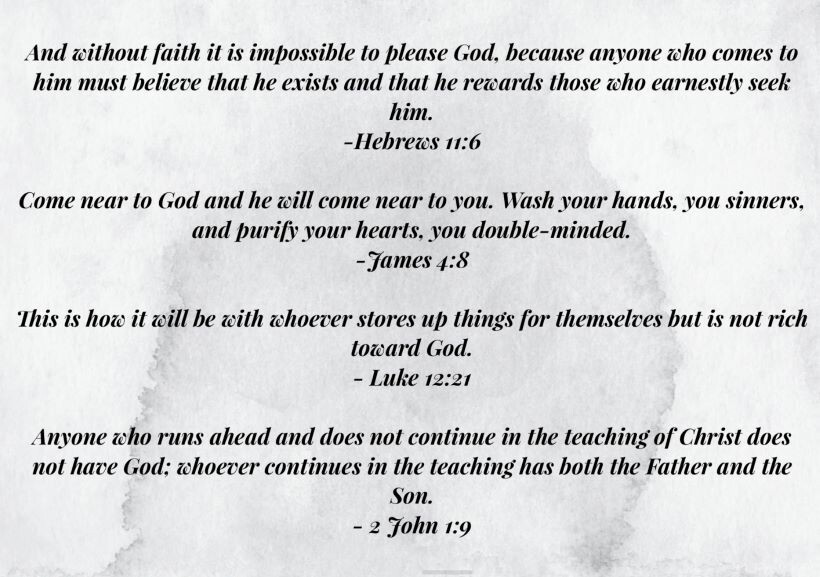
Do What You Can to Sustain Your Relationship
As you can see, it doesn’t have to take a lot of effort to cultivate your relationship with God. Treat your relationship with God like you would any other person you spend every day with. Small acts filled with quality time will preserve and build your sacred bond with Him.
- Torrance Church of Christ

